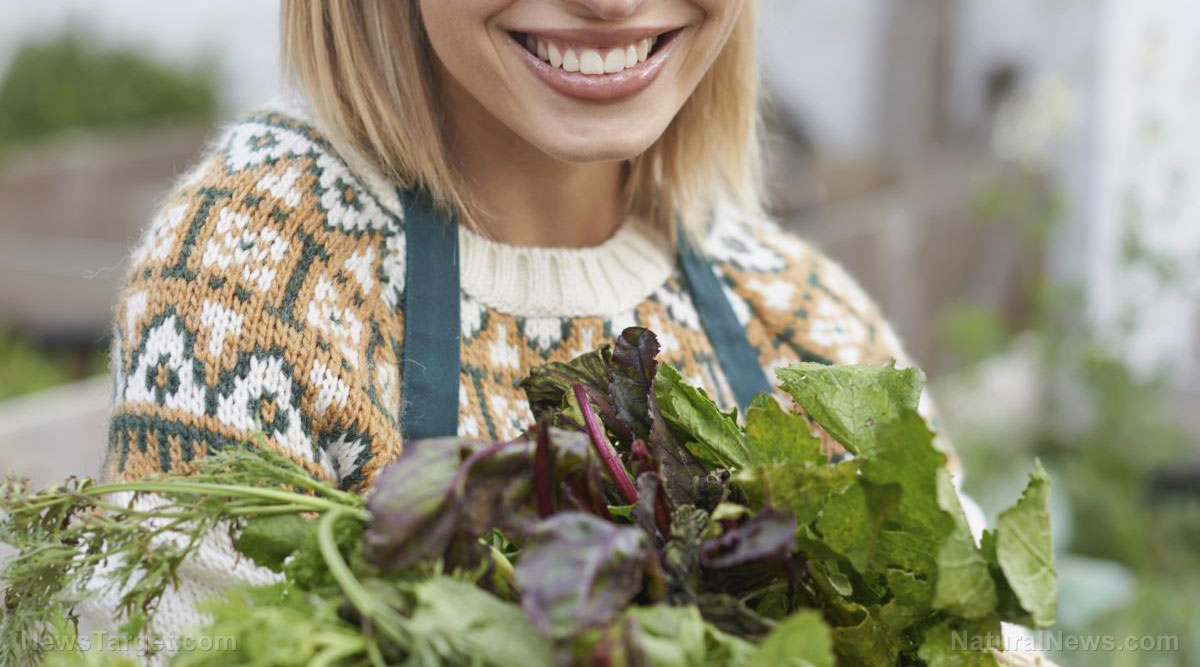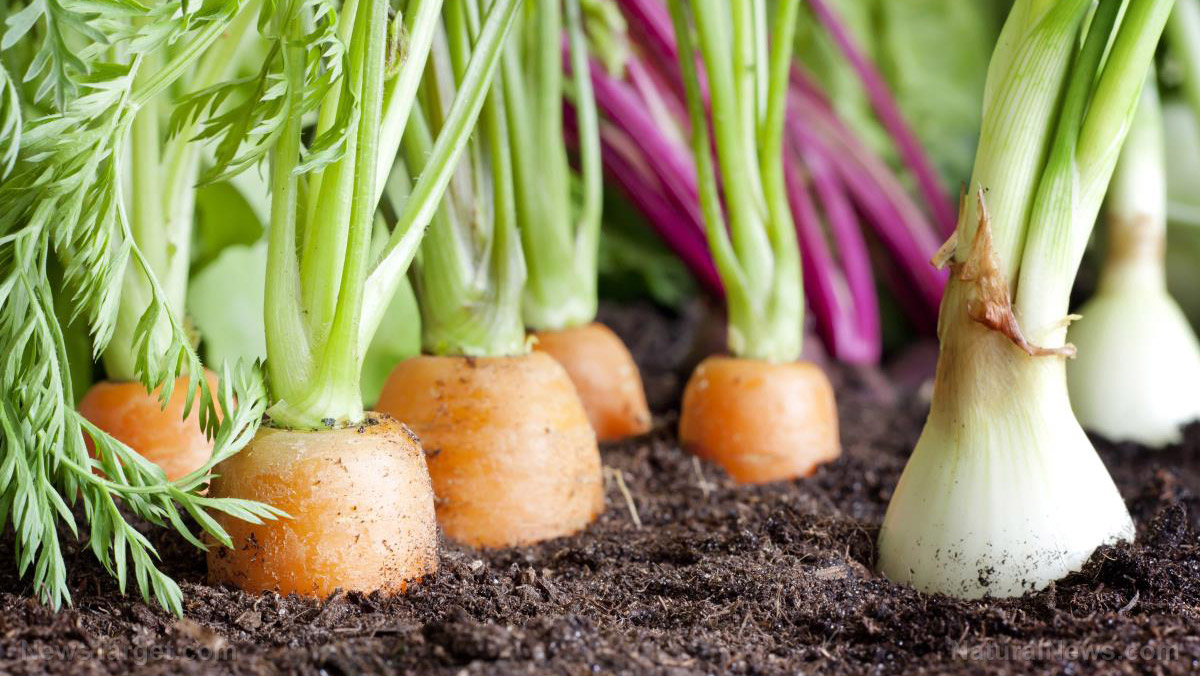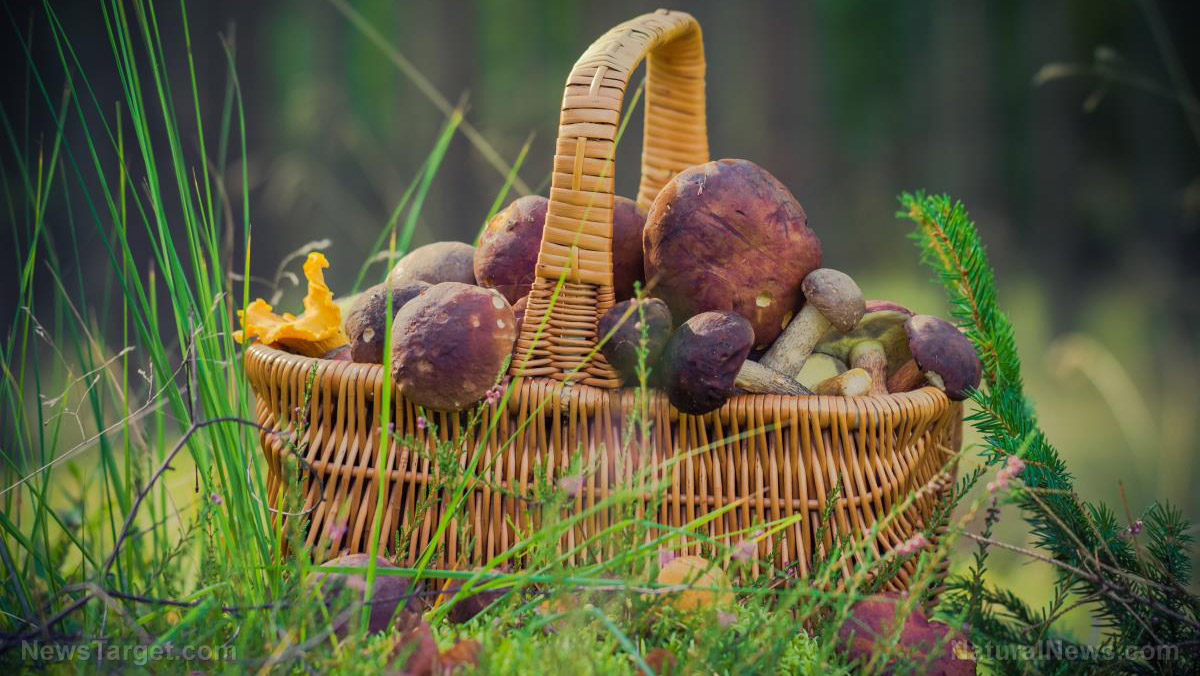
Advertisement
Most people think that wintertime spells the end for plants, that the cold weather will leave your gardens barren and lifeless. And while these sentiments are mostly right, they don’t take into account the fact that some plants can actually defy the odds and survive — if not thrive – in the biting cold.
Lest you think otherwise, however, winter gardening doesn’t mean literally planting things in the snow. Rather, it’s more about knowing which plants are almost as resilient in winter as they are in summer and then planting those in your garden well before the first frost arrives.
Some of the vegetables that are perfect for winter gardening are the following:
Brussels Sprouts
Brussels sprouts are loaded with fiber, vitamins, minerals and potent antioxidants, thereby making them quite an impressive functional food. Because of their nutrient and antioxidant content, Brussels sprouts are said to have the potential to decrease inflammation in the body, improve blood sugar control and even reduce the risk of cancer.
Carrots
One thing that most gardeners often forget is that carrots, unlike other vegetables, are actually winter-hardy. Want to maximize your space? Plant other root and leaf crops, such as turnips and lettuce, with these bright orange babies and marvel at how the roots actually taste sweeter after a hard freeze.
Mustard Greens
Mustard greens, unlike other vegetables, do well in the cold season. This makes them a boon for those who want a steady supply of delicious and healthy greens even during the winter. Noted for their spicy taste, mustard greens are very easy to grow and are known for being rich in vitamins K, C and A.
Broccoli
Another cold-hardy vegetable, you can plant antioxidant-rich broccoli in your garden in mid to late summer, in order to ensure a crop for late fall or early winter. In mild winter regions, you can start your seeds indoors, and just transplant the seedlings to the garden when they are 4 to 6 weeks old, after sufficient hardening. The same principle is true for other members of the Brassica family, such as cauliflower and cabbages.
Napa Cabbage
Napa or Chinese cabbage is an Asian vegetable that is mostly used as the base for Korea’s famous kimchi. This Incredibly nutritious and refreshing vegetable is noted for having a sweeter flavor compared to the ordinary cabbage varieties, as well as for being incredibly cold-hardy.
Other vegetables you can grow over the winter include the following:
- Kale
- Beets
- Kohlrabi
- Asparagus
- Peas
- Spinach
- Garlic
- Onions
Aside from food crops, you can also plant flowering plants that are capable of withstanding drops in temperature, while at the same time, help beautify your space.
If you’re planning to have a garden that remains beautiful even in the thick of the cold season, here are some flowering plants that can withstand the freezing winds of winter:
Violas
Violas or violets may look dainty and delicate but did you know that they are actually alpine species? What this means is that they have evolved several adaptations that allow them to survive even heavy frost and snow. This also means that they can produce flowers—in the middle of winter.
These lovely flowers love the sun, however, and would prefer to be planted in areas where there’s full sunshine.
Want to plant them in your garden? Arrange these brightly-colored blooms in clusters along pathways for maximum appeal and visual impact.
Camelia
The camellia or Camelia japonica is an evergreen shrub that thrives even in bitter winters – a quality that has caused it to earn the nickname “Winter Queen.”
A relative of the tea plant, camellias prefer a neutral to slightly acidic and well-draining but humus-rich soil that can provide it with much-needed nutrition.
Noted for being a shade-loving plant, camellias will appreciate it if you planted them in the dappled shade of deciduous shrubs or trees.
Crocuses
When it comes to surviving in freezing temperatures, no other plant can beat the humble crocus.
Known for blooming in a variety of colors, crocus plants not only provide color to a winter garden, but they also naturalize, meaning that they spread and come back year after year. thereby resulting in an ever-larger display of blooms.
Grow crocuses in October or November for some late winter or early spring blooms. Just like violets or violas, try growing them in clusters for more visual impact.
Primroses
A staple in many gardens, primroses are very hardy and long-enduring plants, with the brightly-colored plants known for needing little to almost no attention. Primroses are also edible and can be incorporated in garden salads to give them pops of color.
Cyclamen
Cyclamen, better known to expert gardeners as Cyclamen persicum, is a small plant that is best known perhaps for its sweet-smelling small flowers that stretch up above its lush foliage.
This plant is a tuberous perennial. This means that it “dies” down to its thick roots or tubers during its dormancy period in the summer, before once again growing thick foliage each fall.
How do I prepare my garden for the winter?
As with anything else, it is best if you prepare your garden before doing any major undertaking such as planting for the winter. This ensures that your plants will thrive, or at least have a fighting chance at healthy growth.
With that said, here are some things you can do to ensure a smooth-sailing winter gardening experience:
- Weed the garden: This will ensure that your plants will have no competition for nutrients during the winter.
- Remove debris and dead foliage: Clear fallen leaves and other debris from lawns and beds in order to decrease the risk of overwintering pests and diseases. Also, take this time to dead-head your plants before the first frost arrives.
- Start your seeds in trays: If you live in the northern states or territories where the temperature can drastically plummet, it may be a better option for you to start your seeds in indoor growing trays. This will allow you to monitor their growth more closely without risking damage from unpredictable weather.
- Grow your crops in raised garden beds: Wet weather during winter can inhibit plant growth. To address this, you can plant your crops in raised beds, as these typically have better drainage.
- Mulch: Clean, dry leaves and flower heads can be shredded and used as mulch, which can then help stabilize the plants’ root temperature. Gather as many clean leaves and organic matter as you can and put them through a leaf shredder or simply run over them with a lawnmower with a bag attached. Doing this will prevent the leaves from packing together in layers, and thus allow for better air circulation and water flow.
- Add compost and green manure: This will help supply organic nutrients to the soil, thus ensuring optimal growth for the crops you are growing.
- Use cover crops on dormant beds: If you have beds that are vacant, consider plantain some cold-hardy cover crops in them. These plants are important because they help restore soil nutrients, as well as control weed growth, erosion, and compaction, which can affect soil health.
While it may be a new endeavor for some, winter gardening doesn’t have to be an overly complicated and confusing activity. Simply knowing what to grow during wintertime will help keep your garden vibrant and healthy even during winter.
Sources:
Advertisements







